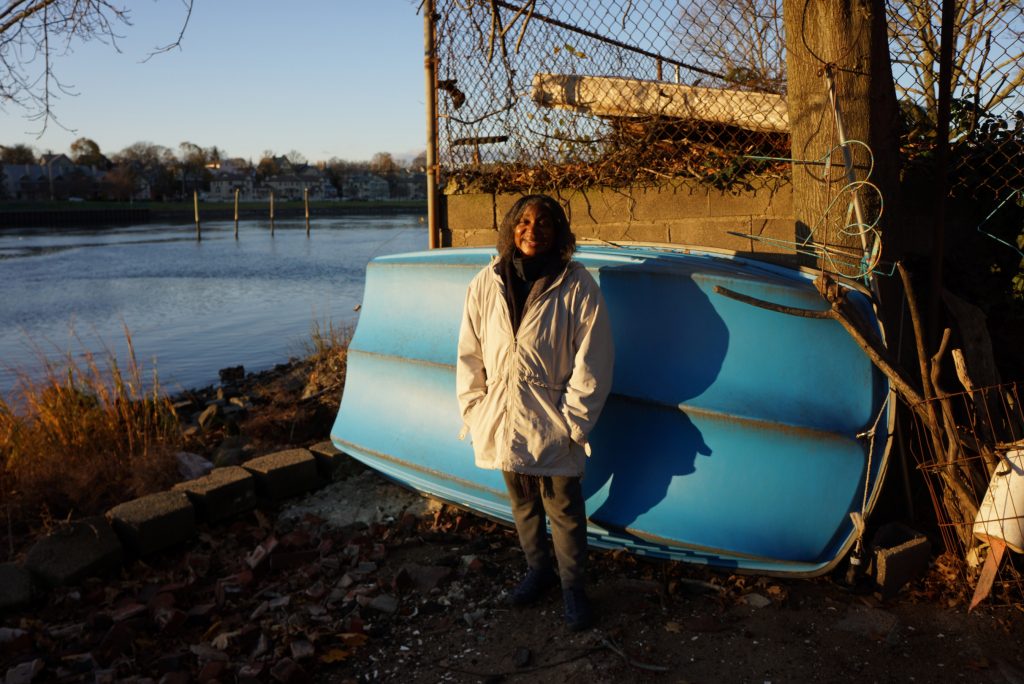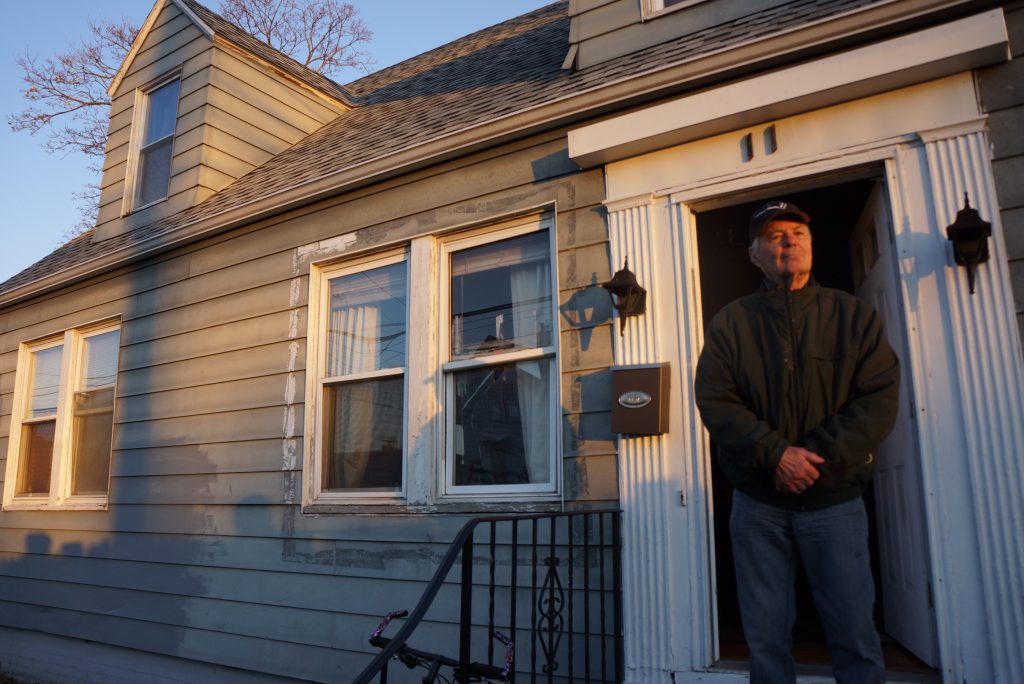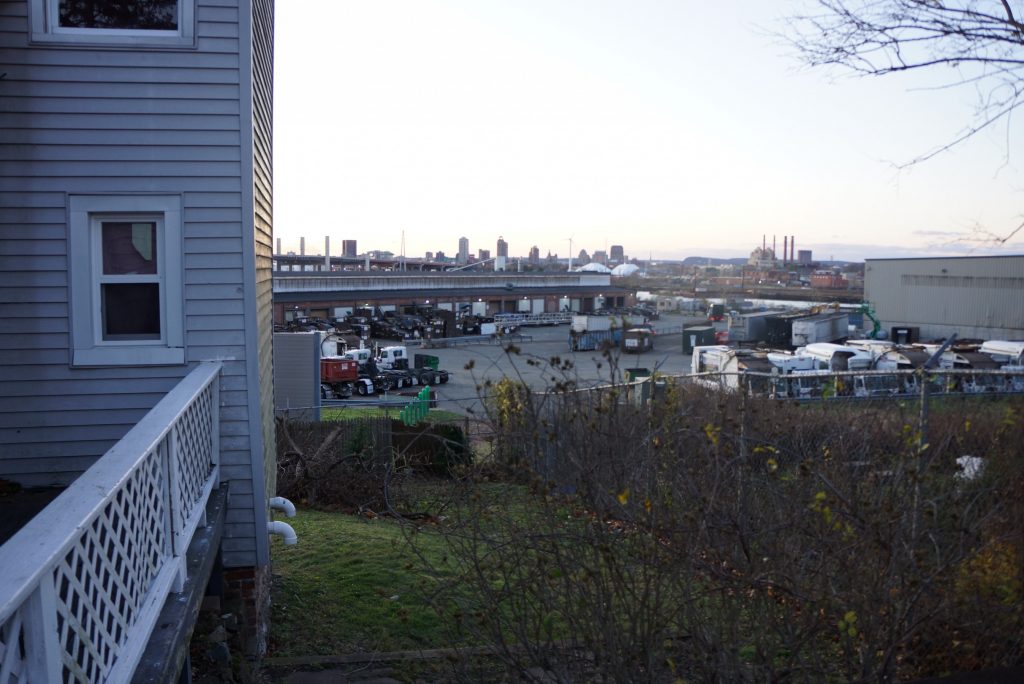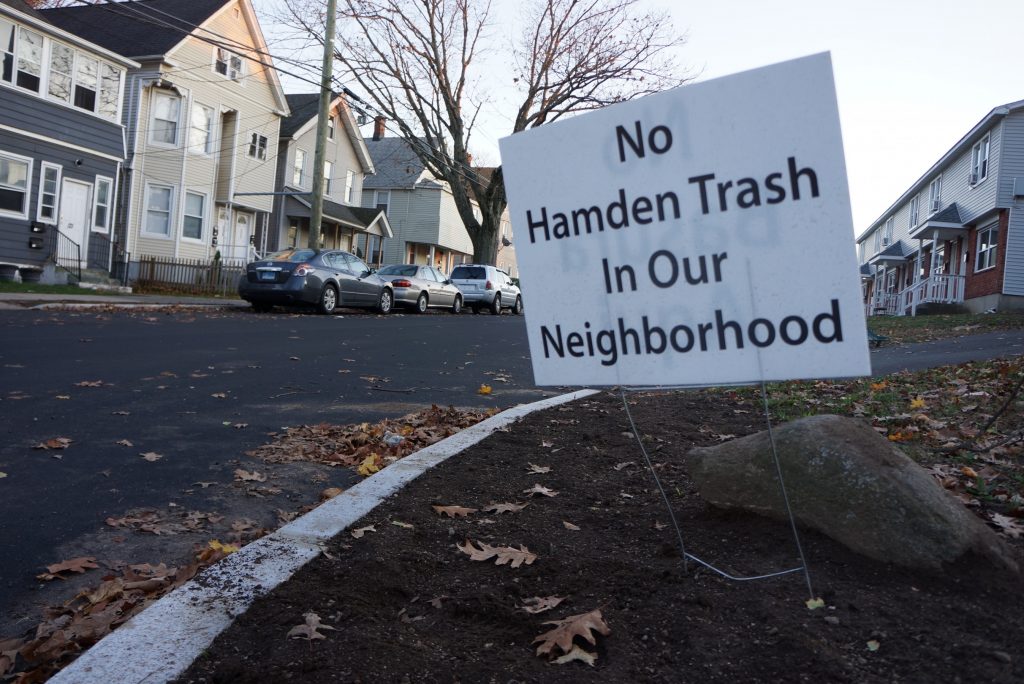The Annex, a neighborhood of New Haven, is the most environmentally over-burdened neighborhood in Connecticut. It hosts oil terminals, I-95, and is near New Haven Station, a dirty oil burning power plant. It is also home to a transfer station for construction and demolition waste and “non-putrescible” (dry) municipal solid waste. But this is not a strictly industrial area—all these polluting uses border a residential neighborhood with schools, churches, and daycare centers. Nearby residents already report foul smells and vermin from the waste facility. The facility also borders the Quinnipiac River, which instead of being used as a recreational and environmental resource for the community, is instead lined by oil terminals and trash facilities. In wealthier, more powerful communities, water resources are treated huge assets to be preserved—but in low-income communities polluters often see an opportunity to do things they couldn’t get away with elsewhere.
In light of these concerns about environmental justice and equity, one would think the state and city would do everything in its power to clean this area up and to reduce the burdens. Remarkably, however, the waste facility is looking to expand to putrescible municipal solid waste that decomposes and liquefies, hugely exacerbating the burden on the neighborhood. What’s more, the waste that will be going into the community isn’t even from New Haven or the Annex itself. Instead it is from the far wealthier bordering communities that have the means and the power to prevent these types of facilities from being sited nearby, effectively forcing them into already overburdened communities.
This type of expansion is a direct, foreseeable result of the closure of the large incinerator that handles a significant portion of Connecticut’s municipal solid waste and leaves the state without a viable way to handle municipal solid waste. The state needs to react to this challenge by increasing recycling and reducing the amount of waste that needs to be handled. Unfortunately, that is not happening. Instead, the policy appears to be to put the additional burden onto our most powerless and overburdened communities. This is unacceptable as a matter of basic fairness.
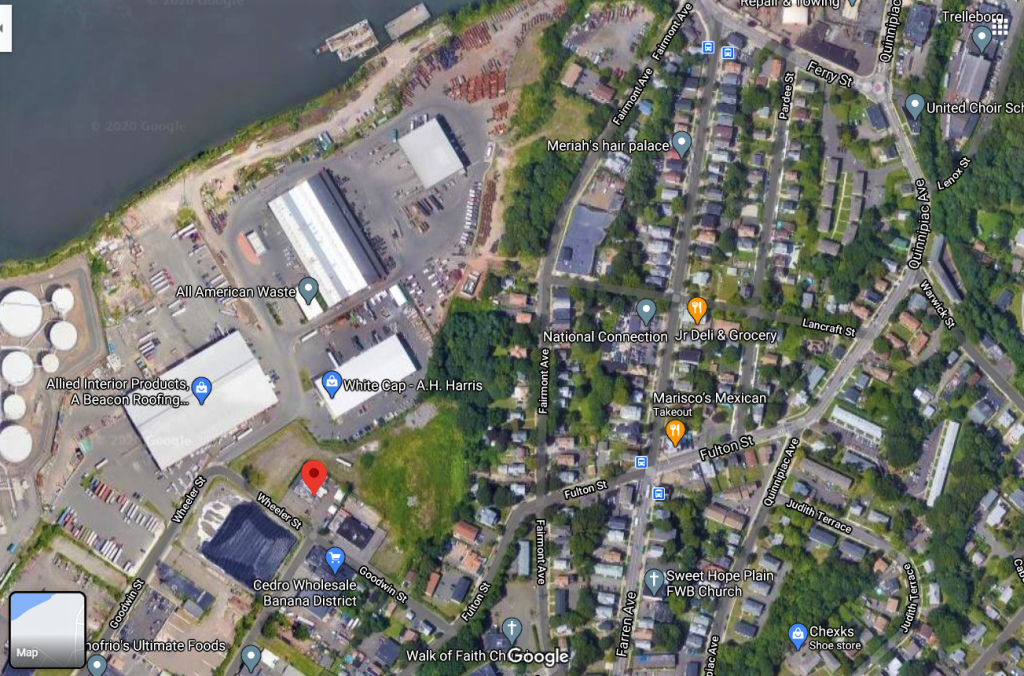
The City Plan Commission, which acts as New Haven’s zoning agency, has held two public meetings (on Nov 18th and Dec 2nd) and will hold its next meeting on Wednesday Dec 16 at 7pm via Zoom. Because of the importance of community participation in this hearing, and because the lower income, Black, and Latinx residents impacted by this project tend to have less reliable access to wifi and internet than do the wealthier and more powerful communities that would be contributing the waste, we asked the Commission and the Applicant to delay the application until there can be a true in-person hearing. They declined and insist on going forward virtually. Thus, we need as significant a turnout as possible to let the Commission know that they can’t continue to dump on this neighborhood.
The proposal violates principles of environmental protection, equity, and basic justice. It also violates both the spirit and the letter of the regulations. New Haven is already overburdened with these facilities, and because “the burden of fulfilling the need for solid waste facilities shall not fall disproportionately on any community,” Section 42(h)(1) of the regulations prohibits the construction of new facilities. But expanding this existing facility to handle putrescible waste would have the exact same impact as constructing a new one for that purpose. Moreover, the regulations require compatibility with the neighborhood, by evaluating traffic, nuisance, air and water quality impact, facility size as compared to other parts of the region, proximity to schools, parks, playgrounds day care facilities, health care facilities, nursing homes and residences, and the presence of other nuisance sources in the neighborhood.
This facility fails EVERY SINGLE ONE OF THESE TESTS. Yet the proponent is trying to use its clout, power, and threats of lawsuits to push this blatantly illegal and unjust plan through the City Plan Commission.
Save the Sound is working with a coalition of community members and organizations to require the Commission to permit LESS, not MORE, pollution in this neighborhood. If the Commission refuses to enforce its laws to block this facility, we may have to go to court to fight it.
Some responses from community members can be listened to here and here.
If you think that the Commission needs to enforce its laws and reject this illegal and immoral facility, please speak up.
- Draft comments to the Commission stating your opposition, and submit them online here at least 24 hours before the December 16th hearing.
- Show up on the Zoom hearing at 7:00 p.m. on December 16th to have your voice heard:
- The Commission’s website will soon be updated with meeting info—check back for the agenda and Zoom link.
Don’t let the City Plan Commission and Murphy Road LLC drown out your voice and add even more environmental burdens to the Annex and Quinnipiac River. Join Save the Sound and your neighbors in speaking up.

